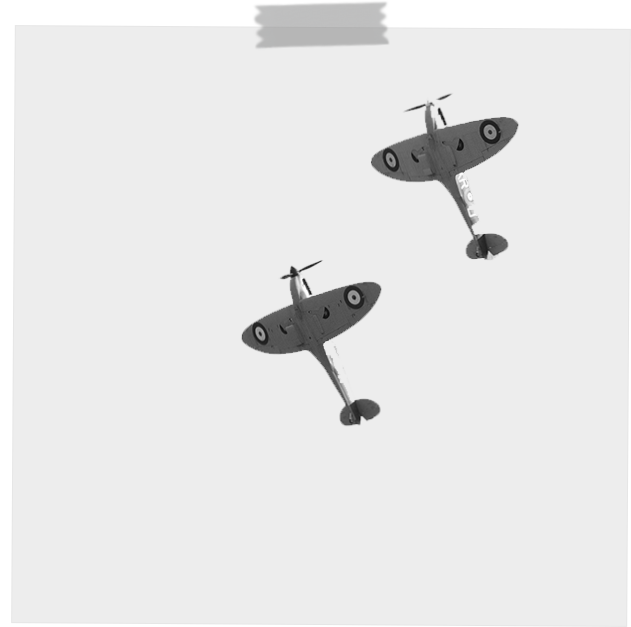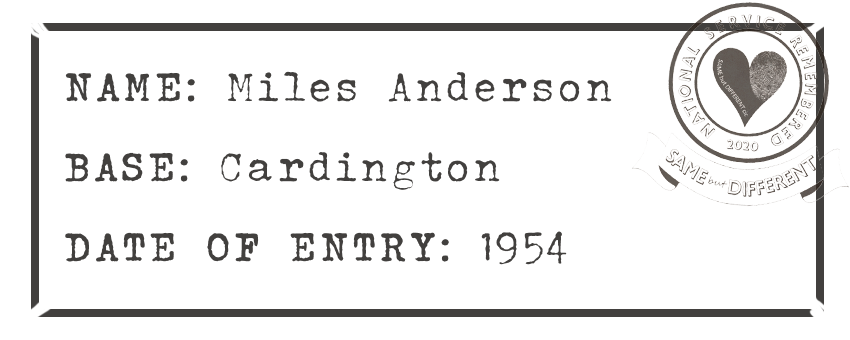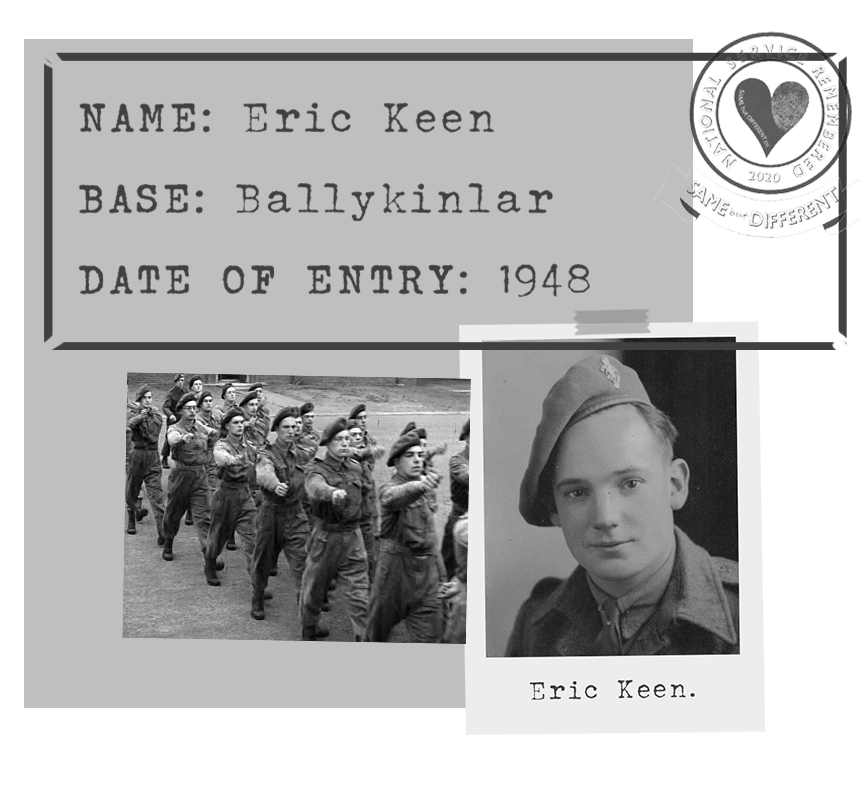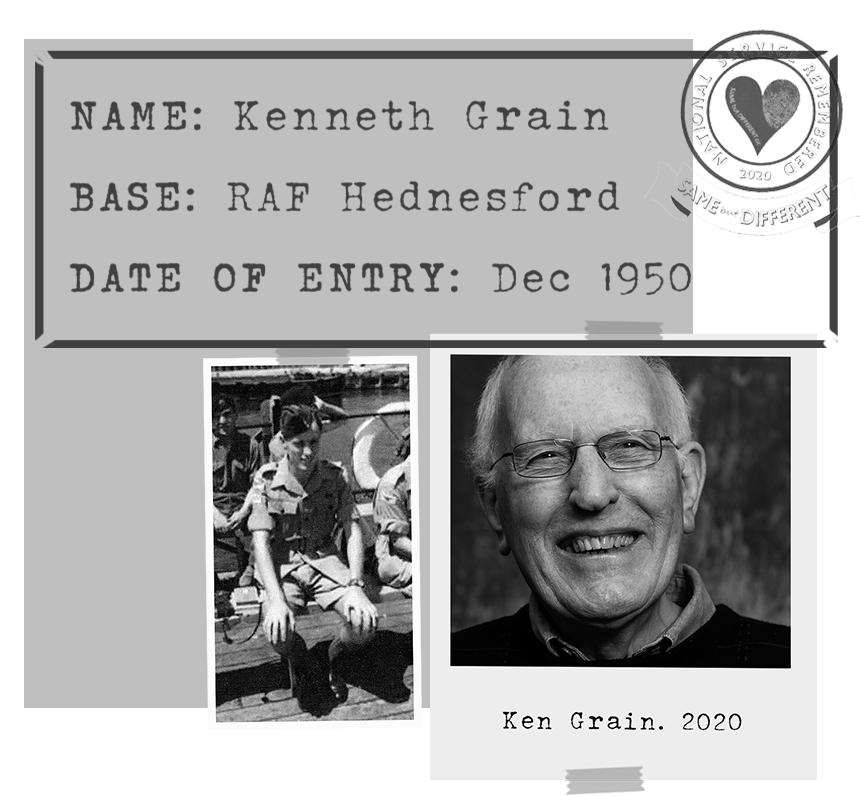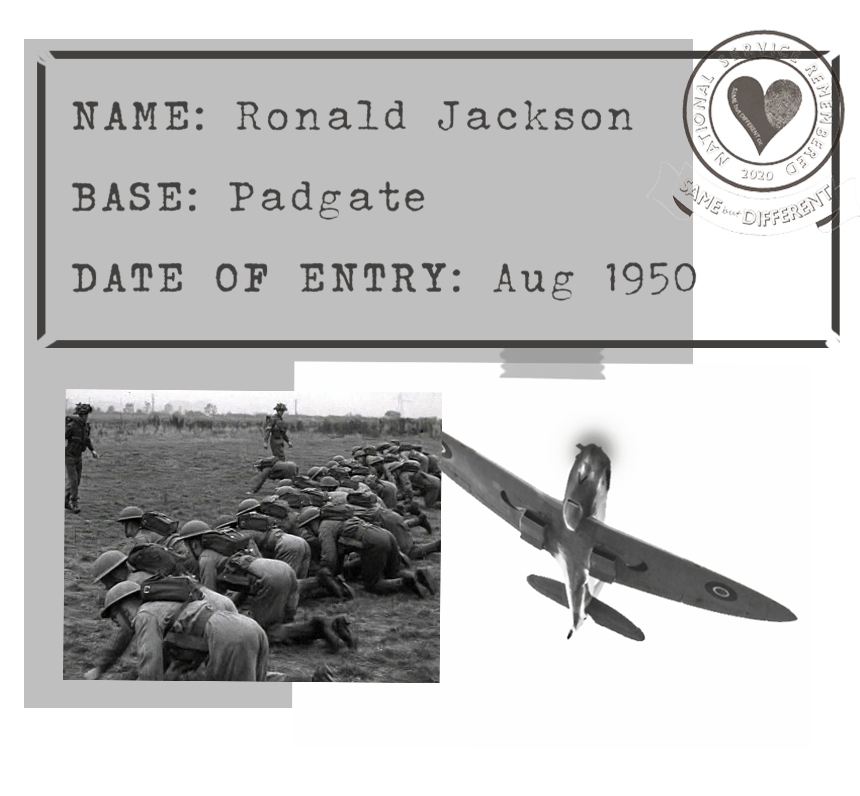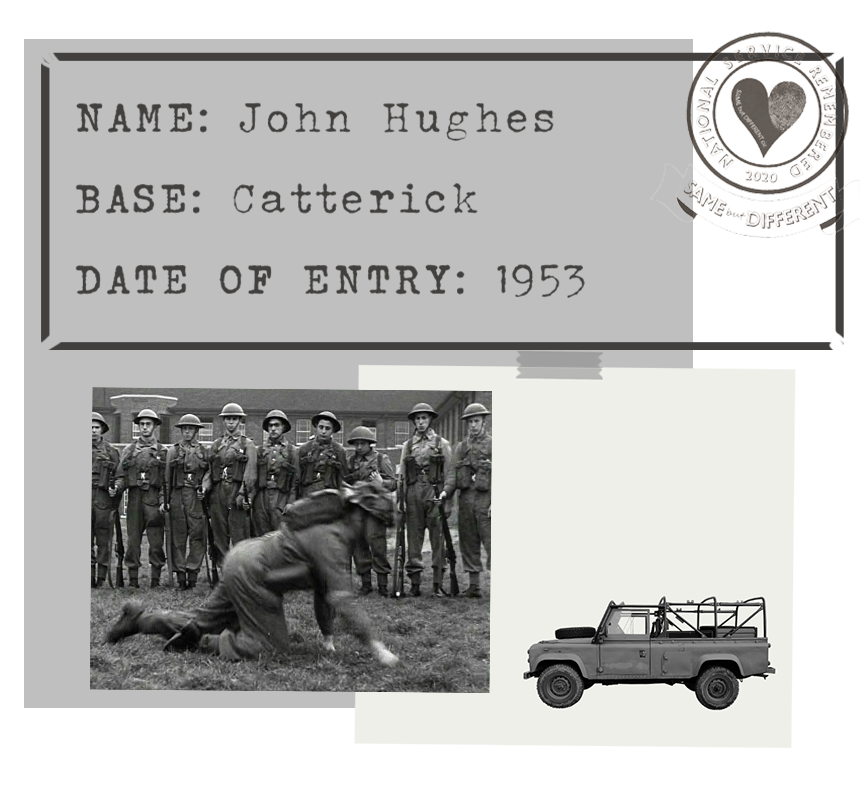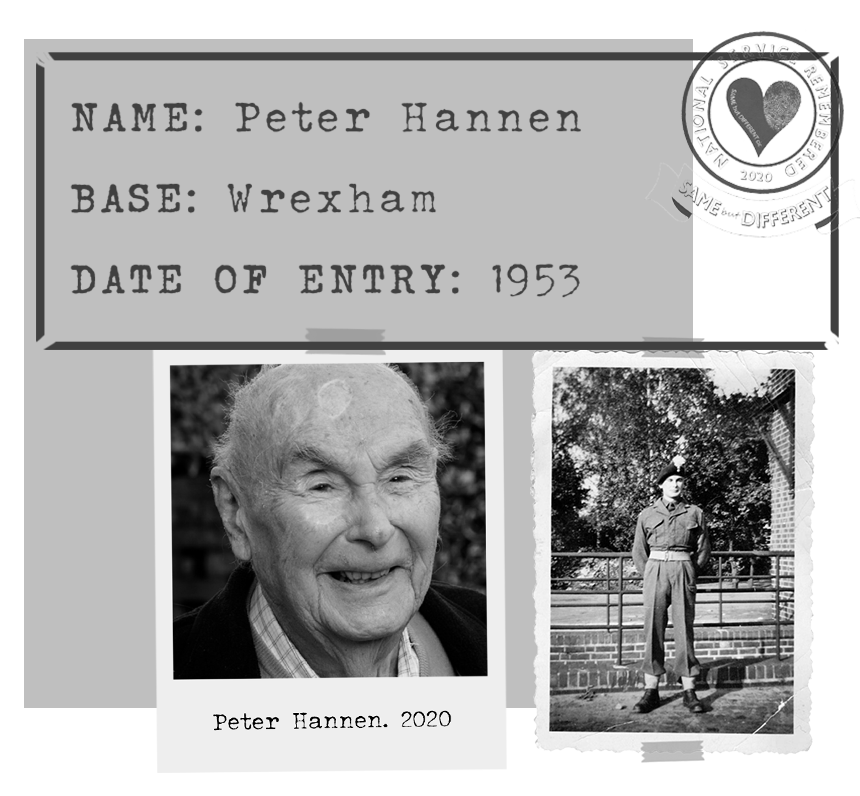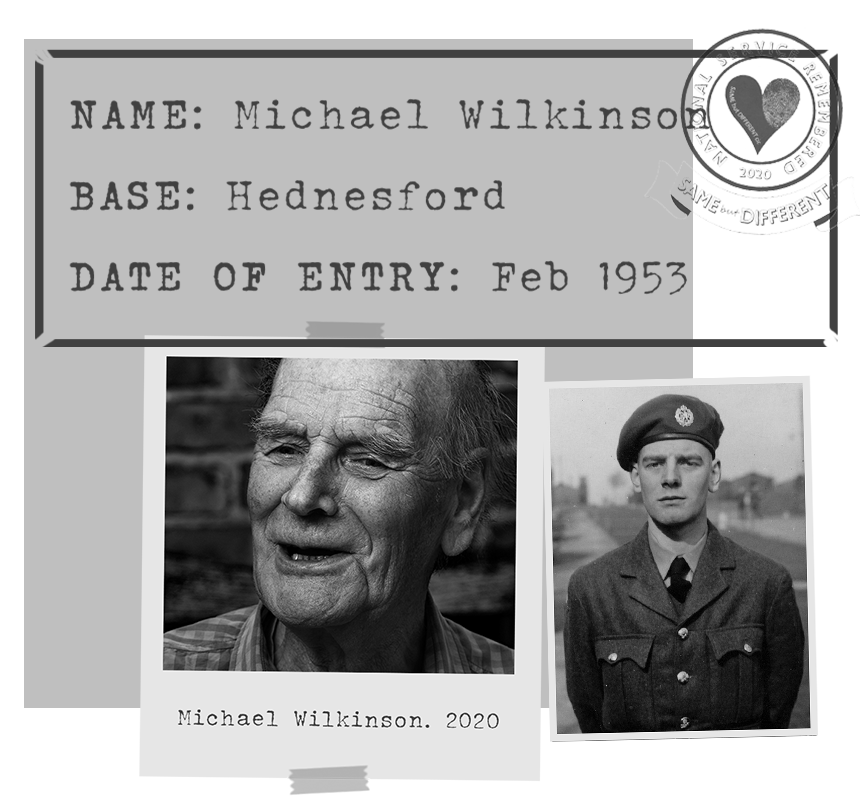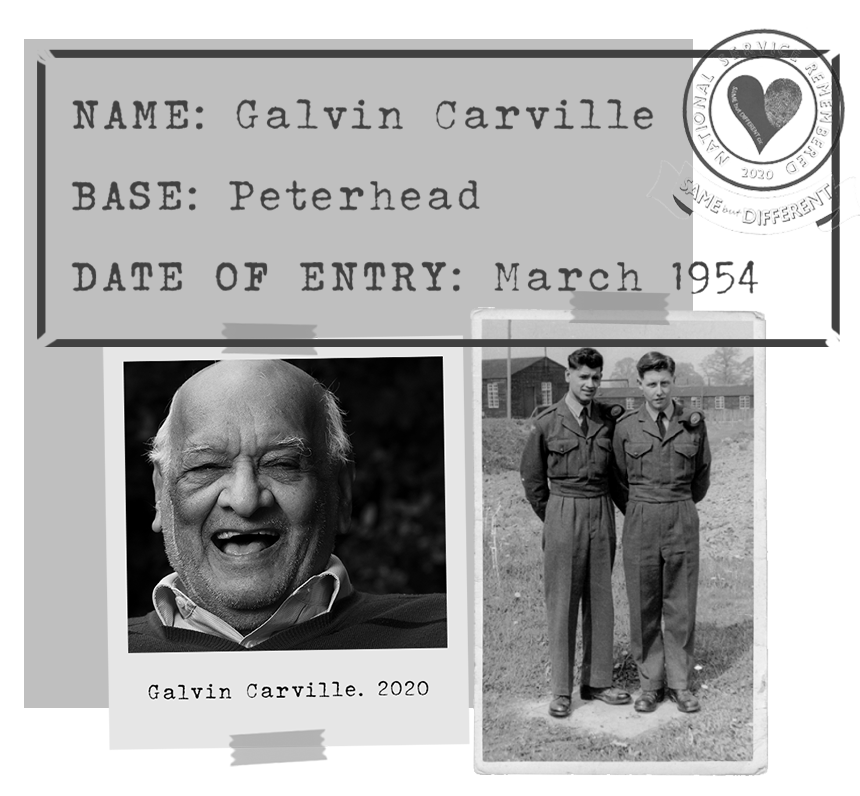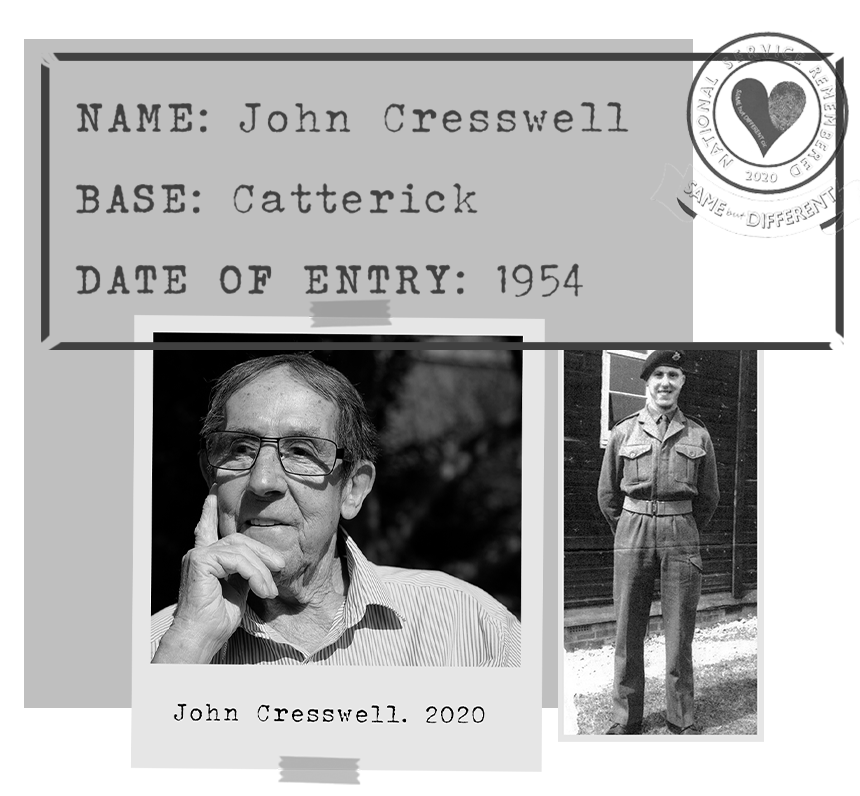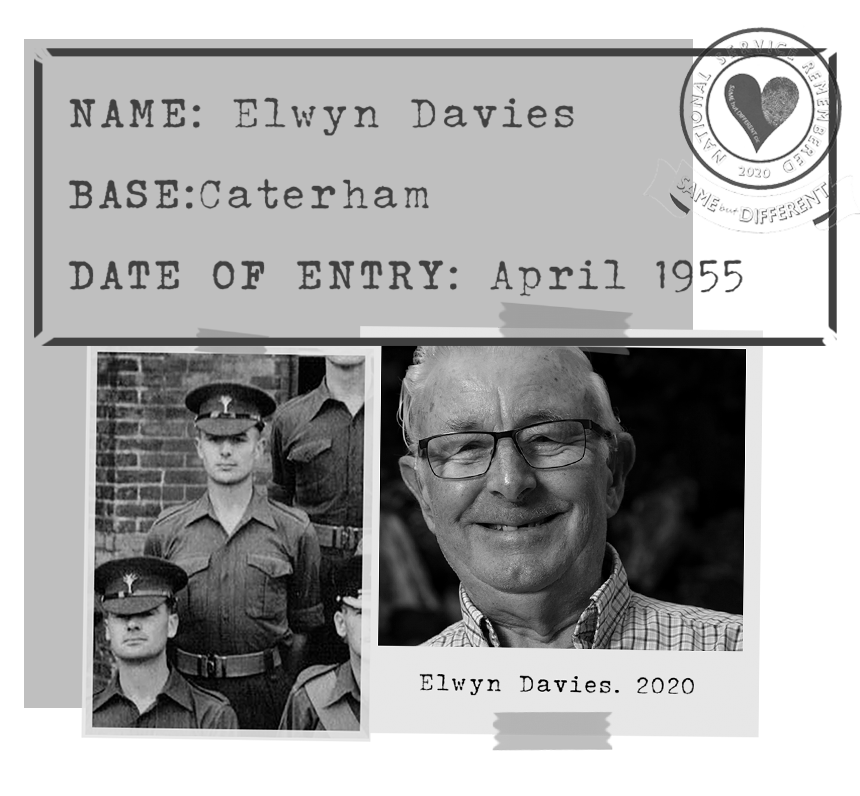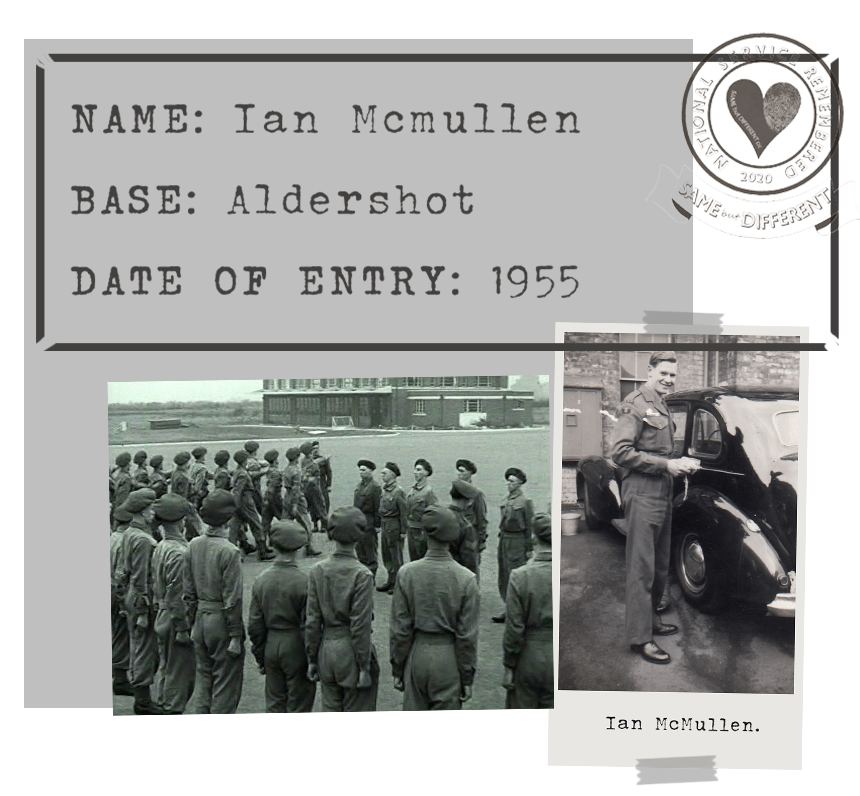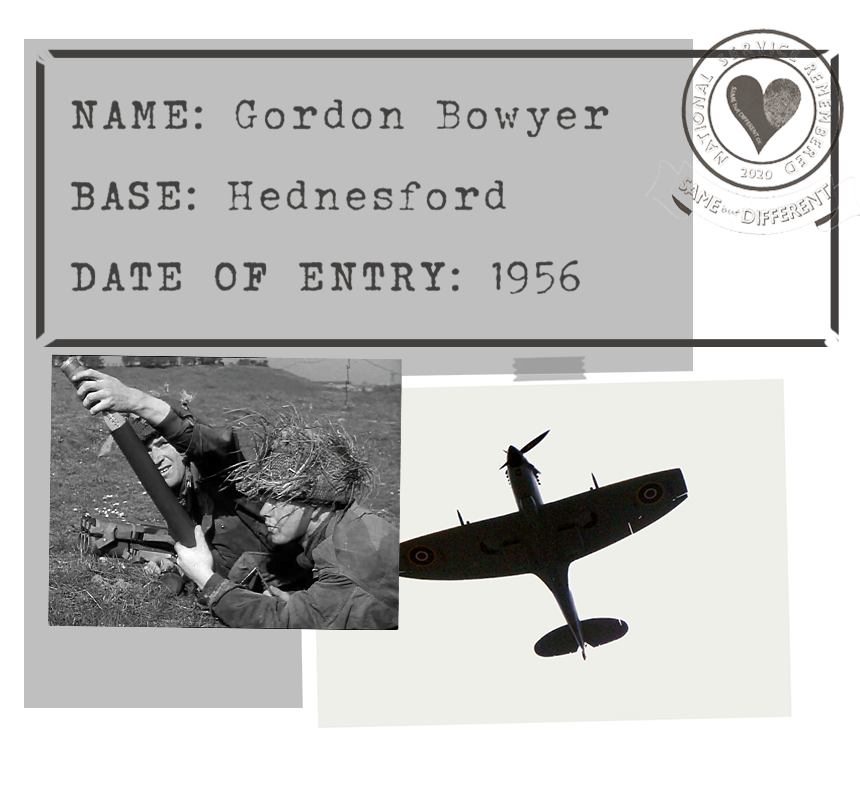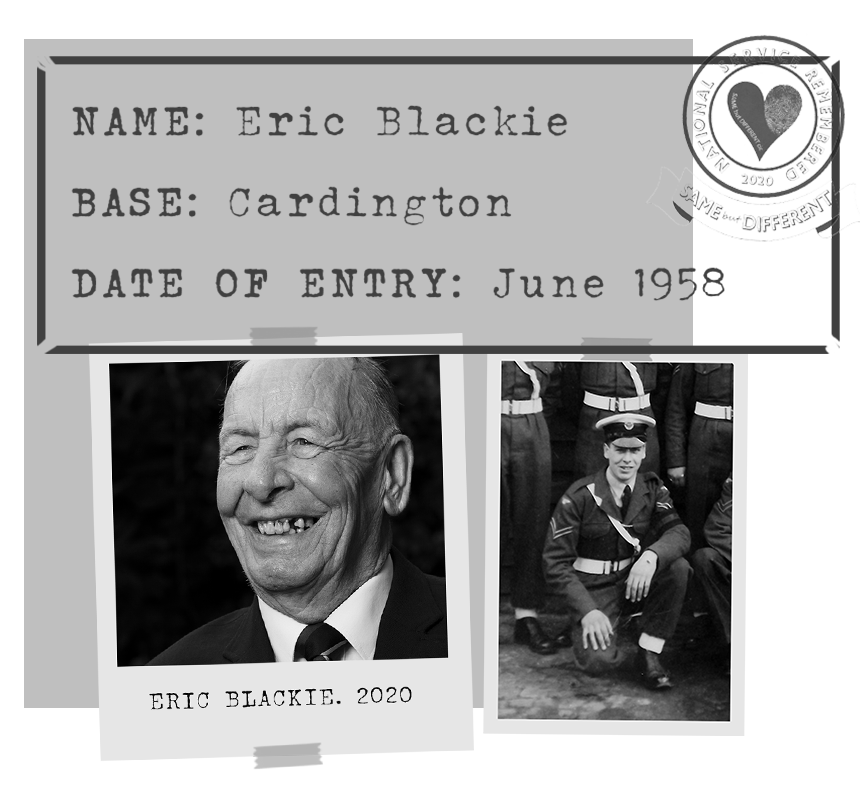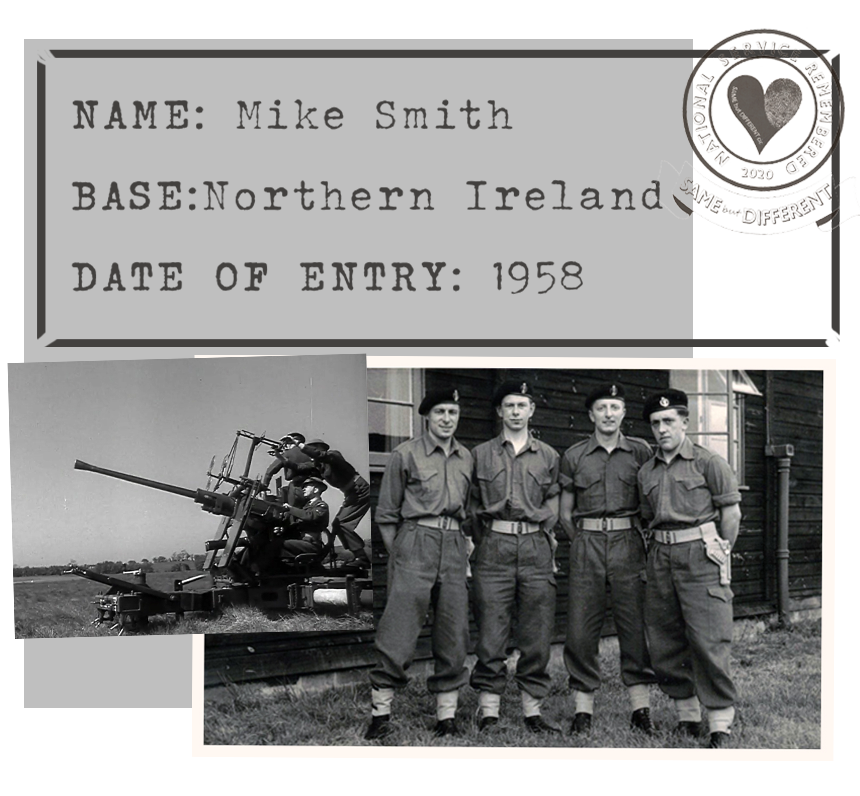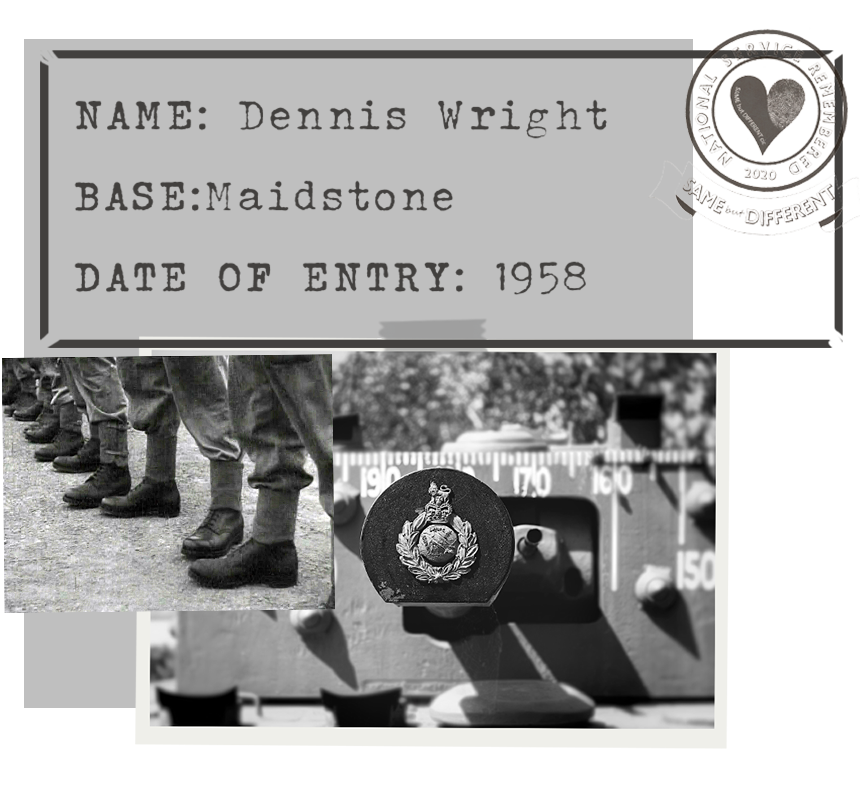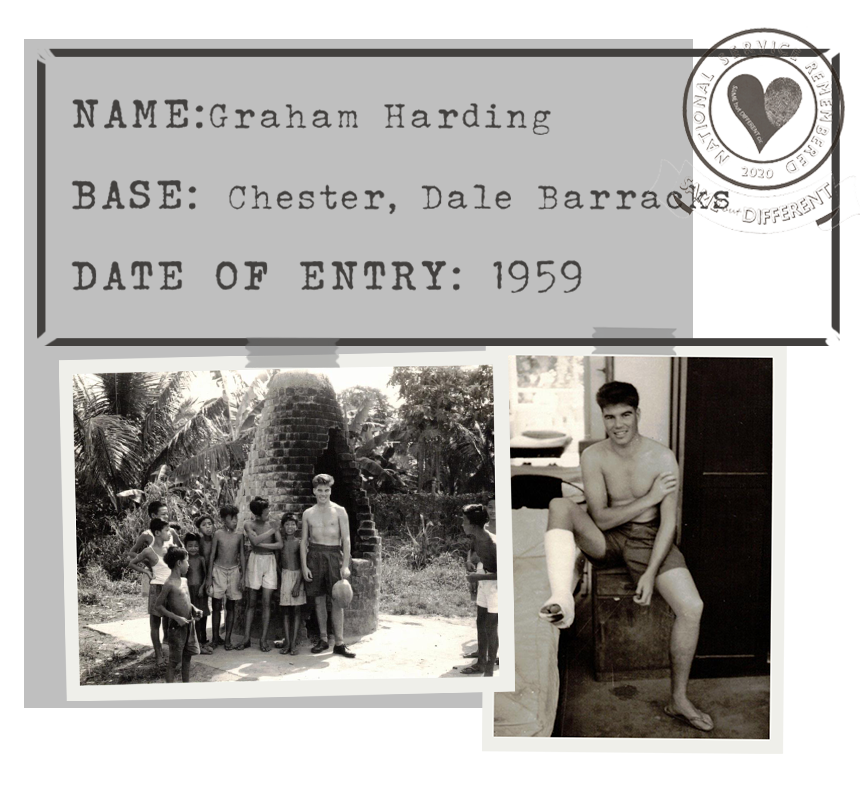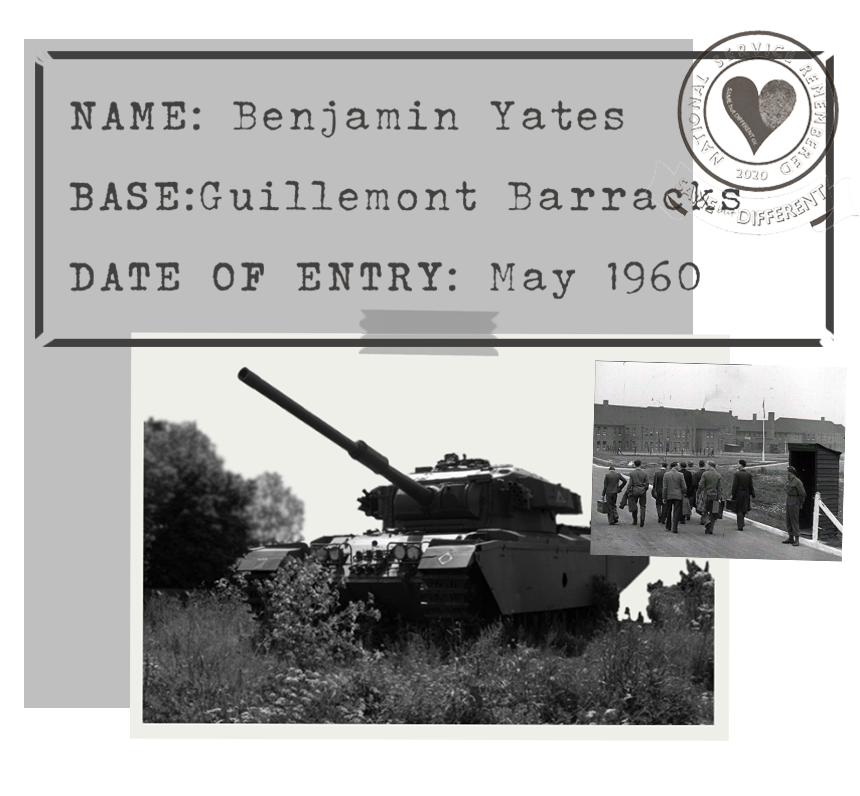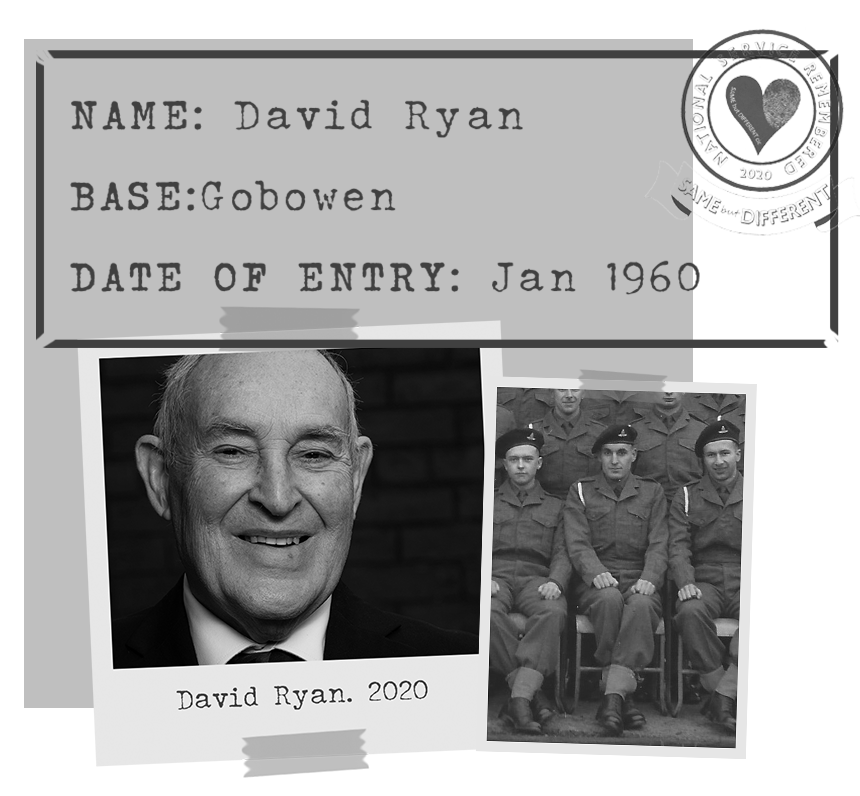“It had very much been part of the RAF image to wear a moustache, something we young recruits tried to emulate.”
It was 66 years ago that I went down to Cardington with my government supplied rail ticket in September 1954, so my memories could be faulty.
I was to serve my National Service in the RAF. Those allocated to the RAF needed to have GCE (General Certificate of Education) of similar trade qualifications.
I had been away to boarding school, so leaving home and living in a dormitory with a group of other boys was not new to me. And, as I discovered as time went on, being brought up during the war in a household of three boys, with a father on exempted work and a hardworking mother had prepared me for leading a disciplined life. We three boys had daily tasks to fulfil, helping to keep the house clean, and the garden tended as we relied on the vegetable and fruit garden for much of our sustenance. Home life was organised.
On arrival at Cardington we were kitted out, issued with all the necessary equipment and after a brief touching base were bussed to our ‘Square Bashing’ camps. Cardington was dominated by the huge hangers in which the R100 airship was fatally destroyed by fire, and the R101 had also been housed. My next camp was RAF Hednesford, near Cannock Chase, and this was where my national service really began.
“I had been away to boarding school, so leaving home and living in a dormitory with a group of other boys was not new to me.”
We were billeted in a hut with probably 18/20 young men, each allocated a bed, bedding, a small cupboard and small wardrobe or place where uniforms could be hung out of sight. There were two solid stoves, one at each end of the hut to provide warmth. At the end of the hut was a room for the NCO (Non-Commissioned Officer) in charge of that billet.
From then on it was all spit and polish, discipline, regimentation and drill. First thing in the morning Reveille woke us up. Out of bed to the wash house to wash and shave in rows, each of us peering into some sort of mirror.
Then back to dress, strip the bed and fold the bedding as we had been shown at the end of the bed. This would be inspected with a tape measure to ensure that everyone’s bedding was aligned and arranged as required. Bedding inspection would reveal any deficiencies and would have to be completely redone if judged inadequate.
For me, as well as benefitting from a disciplined home life and boarding school, I had been good at school at PT Classes (Physical Training), and therefore I was able to respond well the drill regime and the physical training sessions that from that moment on were a major part of our lives. Our mornings, after breakfast, were a succession of drill, physical exercise, weapon training and lectures. At each occasion we had to change from one set of clothes into another one, and all ‘at the double’ of course, and everything back in the billet had to be left in immaculate order.
On the parade ground at drill we were subjected to a constant stream of abuse and swearing.
Usually this was directed at the whole group. But there were always those recruits who, for one reason or another, seemed to attract the attention and abuse of the Drill Sergeant. Some people just hadn’t learnt how to keep a low profile! But it was what we had been led to expect from tales told by earlier National Service friends. Certainly square bashing was the most influential time of my National Service. I learnt discipline, to fit in and get on with people who came from a wide variety of backgrounds, and how to keep a low profile when necessary.
I was later posted as a messing clerk to RAF Leconfield in East Yorkshire. One of my most pleasant duties was to be up before dawn, once a week, to go with the ration lorry to York to collect the provisions. I would sit up there in the lorry and watch the sun come up over the Yorkshire Wolds, and pass through Beverley with its beautiful Minster and eventually arrive back around midday with all our stores.
For many young recruits who were leaving home for the first time they were well built and stocky, so they lost their ‘puppy fat’ during square bashing. I, on the other hand was little more than skin and bone, only 8stone 4lbs. With all the exercise I put on a stone of weight. At meals, in the mess, I would sit down with a plate of food and a pile of bread to eat with it – I was starving. And the food was generally good and wholesome.
One thing I did manage, was to grow and keep a moustache.
It had been very much part of the RAF image to wear a moustache. And many of we young recruits tried to emulate this image. But it was the part of the drill instructor to challenge those with facial hair that they should match the image on their identity card. “What is this xxx fungus on your xxx upper lip, airman?” was a regular challenge barked by the Drill Sergeant. Whereupon they had to produce the card and if you were shown as clean shaven, the order was to shave it off! Somehow I avoided this challenge and kept my moustache.
“At meals, in the mess, I would sit down with a plate of food and a pile of bread to eat with it – I was starving.”
I was also posted for a short spell to the small Cowden range on the east coast of Yorkshire.
It was a very relaxed station with only about a couple dozen of personnel. We would go to the nearby village in the evenings and several of us got very friendly with a local family whose father worked on the fish docks in in Hull. I also took advantage of the education facilities and would go into Hull on the education lorry to take evening classes and on camp I studied under the education officer and gained German O Level GCE.
Weekend passes were regularly available and usually I could hitch-hike a lift home, often calling in enroute to see my girlfriend who worked as receptionist at the Queens Hotel in Leeds. Occasionally, having missed the last train, I would have to sleep on a station bench in Hull so as to get the early train back to Leconfield to check in before the time my weekend pass would run out.
I once invited my girlfriend to come and stay the weekend with the family we were friendly with. She was astonished when it was bed time that she was expected to share a bed with two other girls!
As a group we had all been assessed as POMs (Potential Officer Material), and in due course we were all assessed as to our suitability. Quite correctly I was not chosen, and I can now agree that that role was not for me. Overall, looking back I think National Service was good for me.
After my National Service I went on to train for Hotel Management in Switzerland and made a good career in that business, but I don’t think my time as a RAF messing clerk added much to my future life.
“One of my most pleasant duties was to be up before dawn, once a week, to go with the ration lorry to York to collect the provisions.”


